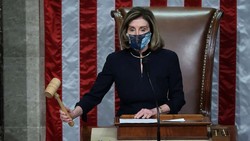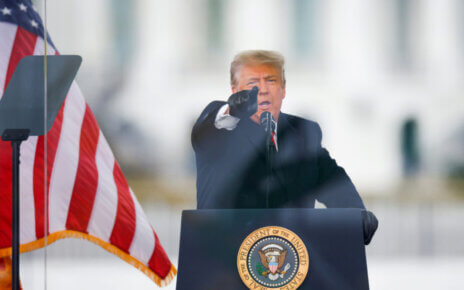Former United States President Donald Trump was indicted before a Manhattan grand jury on Thursday, March 30, making him the first U.S. president to ever have charges brought against them.
Speculation as to whether or not Trump would face criminal prosecution has gone on for years, both during his time in office and in the years that have followed his exit from the White House.
The series of events that led to his indictment began in 2018 when Michael D. Cohen, Trump’s former personal lawyer, made claims that he had ordered him to pay hush-money to two women during his 2016 campaign.
It is alleged that these payments were made to keep the women silenced about their affairs with Trump. Following these claims, the Manhattan district attorney’s office opened an investigation.
In 2019, the district attorney’s office subpoenaed both the Trump organization as well as Trump’s accounting firm, requesting eight years worth of tax returns from Trump’s personal and corporate taxes.
The Trump organization sued in 2019 to protect his tax returns, arguing that a sitting president cannot be criminally investigated.
This lawsuit eventually reached the Supreme Court, with The New York Times stating, “Justices ruled that the presidency did not shield Mr. Trump from criminal inquiries and that he had no absolute right to block the release of his tax returns.”
In the fall of 2020, the prosecution team investigated former employees of the bank and insurance company used by the Trump organization.
Legal investigators also found that there may have been evidence of tax fraud on the former president’s behalf. Later in 2021, the Supreme Court ruled against Trump’s final attempt to shield his tax returns, forcing the Trump organization to pass over the years of tax and financial documents.
In March 2021, the district attorney’s office accused the Trump Organization of allowing executives to evade taxes by compensating them with expensive goods, such as cars or homes, going untaxed.
Numerous attorneys would later resign from the legal team, delaying the process of indictment over the alleged crimes.
In August 2022, Allen Weiselberg, the longest serving chief financial officer to the Trump Organization, pleaded guilty and agreed to testify in court against his former employer. The prosecution further decided to push their original focus of hush-money related crimes.
Later in December 2022, the Trump Organization was found guilty of tax fraud as well as other crimes.
“It’s strange to imagine a President being sentenced to prison, as just a short while ago he was in charge of the country,” reflected a junior political science student. “However, if the charges being brought against him have validity to them, then it is absolutely necessary that he be treated as any other citizen and shouldn’t think that he can be exempt from the law just because he was the president and holds a lot of power.”
A grand jury was selected in January 2023, hearing multiple testimonies regarding the hush-money scenario with a particular focus on the payment made to Stormy Daniels, an adult-film actress.
Daniels alleged that she had sexual relations with the former president and that he gave her money in exchange for her silence and secrecy regarding their interactions.
A sophomore political science student stated, “This situation makes me think that the selection process for the grand jury must have been extremely difficult. There aren’t many Americans who are unaware of who Donald Trump is, so imagine that the selection process must have been a challenge.”
On Saturday, March 18, Trump posted a statement to his personal social media account on Truth Social predicting his own arrest, stating, “leading Republican candidate and former President of the United States will be arrested on Tuesday of next week.”
He also called for his followers to show their support for him through protests. Trump’s prediction ended up being false. However, mere days later, a grand jury found him guilty on charges that are yet to be released.
With the announcement of the indictment of the former president, the country erupted with a mix of opinions and emotions regarding the situation. Many longtime supporters of Trump felt enraged by the decision, whereas others with negative feelings towards him were in support of the arrest. The topic quickly made national headlines on all news outlets as well as social media platforms.
In the next week, Trump is scheduled to appear in court to hear the criminal charges that the Manhattan district attorney has filed against him.
With the former president being expected to run for office again in 2024, it is uncertain as to what lies ahead for Donald Trump.
Republican officials and members of Congress are expected to travel to New York City to protest the arrest and indictment. The issue has been framed as one of a witch hunt. Recently, former President Trump changed his TruthSocial bio to state, “they’re not coming after me, they’re coming after you—I’m just standing in the way.”
It is important to note that there is no verifiable evidence to Trump’s claim.


